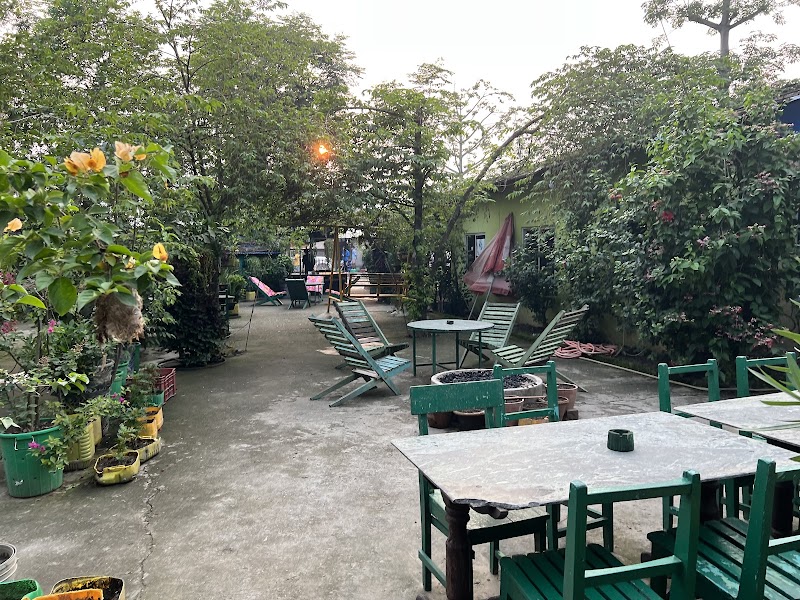
Chitwan Elephant Festival: A Living Celebration of Nepal’s Wild Heart
The Chitwan Elephant Festival brings Nepal’s iconic elephants to life with lively competitions, rides, and rituals inside Chitwan National Park. Perfect for travelers who want to blend adventure with hands-on learning, this unique event highlights the bond between humans and wildlife on the edge of the jungle.
Stay Hydrated Throughout the Day
Temperatures rise quickly once the sun is up. Carry at least 2 liters of water per person and sip regularly, especially during elephant rides or outdoor festival events.
Wear Dust-Resistant Footwear
Festival grounds mix dirt, grass, and some paved areas. Closed-toe shoes with good grip prevent slips and keep dust out for comfort and safety.
Arrive Early for Lesser Crowds
The busiest activities happen midday. Arriving before 9 AM lets you absorb quieter moments by the river and approach elephant bathing rituals before peak attendance.
Respect Elephant and Mahout Boundaries
Elephants are powerful and unpredictable. Maintain a safe distance unless supervised, and always follow guidance from handlers to avoid stress or accidents.
Chitwan Elephant Festival: A Living Celebration of Nepal’s Wild Heart
Each March, the plains of Chitwan shift from quiet wilderness to a vibrant stage where strength, spirit, and ancient traditions converge at the Chitwan Elephant Festival. Located within Chitwan National Park’s embrace, this event plunges visitors into a practical encounter with nature’s giants and the communities that honor them. Far from mere spectacle, the festival offers hands-on experience and excitement wrapped in the steady rhythms of elephant life.
Elephants, revered and fiercely themselves, gather to showcase feats of endurance, agility, and bond with their mahouts in competitions that include tug-of-war, obstacle courses, and races reflecting their strength and coordination. The forest whispers alongside—the birds call, the river nearby dares your attention, and the dusty earth hums underfoot.
This festival isn’t just about watching; it’s about engaging. Visitors learn through elephant rides on carefully charted trails, audial storytelling from locals about elephant ecology and conservation, and observing elephant bathing rituals where the animals welcome the flowing river like an old friend. The terrain is flat, making the walking and riding accessible, but the heat urges you to stay hydrated and wear sturdy shoes for the dusty paths.
Timed in early spring, the air carries a mix of fresh growth and lingering warmth from the retreating winter, an ideal backdrop for adventure and observation. Planning your visit with a local guide ensures access to lesser-known vantage points, including quiet river bends and jungle clearings where you can glimpse wild deer, hornbills, and more lurking shyly.
Practical tips: Come prepared against sun and dust with breathable gear and water bottles; maintain a respectful distance to honor elephant space and safety protocols. The festival's pulse happens over three days, but spend extra time in Chitwan National Park if you want more hiking, birdwatching, or jeep safaris.
The experience balances thrill with education, honoring these magnificent creatures not as objects of fantasy, but as living, breathing partners in Nepal’s wild ecosystem. Witnessing the Chitwan Elephant Festival is engaging your senses and senses of responsibility—an invitation to connect with something fiercely alive and wholly essential.
Nearby Trips
All Adventures
Boat Charters
Water Activities
Adventures near Chitwan, Nepal
Discover the unique and memorable adventures that make Chitwan, Nepal special.
Frequently Asked Questions
What makes the Chitwan Elephant Festival unique compared to other wildlife events?
Unlike typical wildlife festivals focused on observation, Chitwan’s festival actively involves elephants and mahouts in competitions and rituals that reveal daily life and skills. It blends cultural performance with elephant ecology, offering an immersive experience.
Can visitors interact directly with the elephants during the festival?
Yes, but under strict supervision. Elephant rides, bathing participation, and up-close viewing happen with experienced handlers present to ensure safety and respect for the animals’ comfort.
What is the best way to reach Chitwan National Park for the festival?
The nearest major city is Bharatpur, which is accessible by road and air. From Bharatpur, local transport or arranged transfers take about 30 to 45 minutes to the park and festival site.
Are there any restrictions on photography at the festival?
Photography is generally welcome, but flash is discouraged as it can disturb elephants and wildlife. Also, always respect signage and guides to avoid sensitive moments or close approaches.
What wildlife might I see besides elephants during the festival?
Chitwan National Park is home to Bengal tigers, one-horned rhinos, deer, wild boar, and a rich variety of birds including hornbills and kingfishers. Early mornings and evenings are best for sightings.
How does the festival support elephant conservation?
The festival raises awareness of elephant ecology and promotes responsible tourism. It highlights the centuries-old relationship between local communities and elephants, encouraging protection and humane treatment.
Recommended Gear
Breathable, moisture-wicking clothing
To stay comfortable in warm, dusty conditions and during active participation around elephants.
Sturdy, closed-toe shoes
Necessary for keeping feet protected from uneven, sometimes dusty terrain.
Wide-brim hat and sunglasses
Sun protection is crucial; the festival parks have limited shade.
Reusable water bottle with filter
Staying hydrated safely is key, and filtered water bottles reduce plastic waste.
Local Insights
Hidden Gems
- "Sunset viewpoint along the Rapti River where elephants often rest"
- "Quiet forest paths east of the festival grounds rich in birdlife"
Wildlife
- "One-horned rhinoceros"
- "Royal Bengal tiger"
- "Various hornbill species"
- "Marsh mugger crocodiles"
History
"Elephants have been integral to Tharu culture in the Terai region for centuries, historically serving in logging and transportation while holding spiritual importance. The festival evolved from traditional celebrations to a formal event promoting conservation and tourism."
